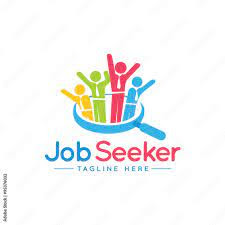DELL TECHNOLOGIES is hiring Fresher candidates for SOFTWARE ENGINEER. The details of the job, requirements and other information given below:
DELL TECHNOLOGIES IS HIRING : SOFTWARE ENGINEER
- Qualification : Any Bachelor’s or master’s Degree
- 0-2 years of experience in Full-Stack development Or C++/Java programming and coding for enterprise product development.
- Experience in feature requirements, development and design of applications which interact closely with business
- Excellent problem solving and programming skills.
- Deep knowledge of Operating Systems and system-level programming
- Location: Pune, India
Interview Questions
1. Tell me about yourself.
Sample Answer:
“I’m a Computer Science graduate and a passionate software developer. During my college projects and internships, I worked on Java and C++ programming, built small web applications, and explored operating systems. I enjoy solving problems using code and I’m now excited to start my professional journey with a company like Dell, which works on cutting-edge data protection technologies.”
2. Why do you want to join Dell Technologies?
Sample Answer:
“Dell is one of the most respected tech companies in the world, known for its innovation and strong employee culture. I admire how Dell works on real-world problems like data protection and cloud infrastructure. I want to learn from the best minds in the industry and contribute to building secure and efficient software.”
3. What is Full-Stack Development? Have you done any projects in it?
Sample Answer:
“Full-stack development involves working on both the front-end and back-end of a software application. The front-end includes what users see—like the UI—and the back-end handles logic, databases, and servers. In college, I built a simple e-commerce website using HTML, CSS, JavaScript, and Node.js. This helped me understand how both sides of an application work together.”
4. Can you explain OOPs concepts?
Sample Answer:
“Sure. OOPs stands for Object-Oriented Programming. It includes 4 main concepts:
Encapsulation – Keeping data and methods together in one unit (like a class).
Inheritance – A class can inherit properties from another class.
Polymorphism – A method can behave differently based on context.
Abstraction – Showing only necessary details to the user and hiding the rest.
OOP helps organize code better and makes it reusable and easier to maintain.”
5. What is the difference between C++ and Java?
Sample Answer:
“C++ is a compiled, statically typed language that supports both procedural and object-oriented programming. It’s closer to hardware and gives more control over memory (using pointers).
Java is a fully object-oriented, platform-independent language that runs on the Java Virtual Machine (JVM). It handles memory automatically with garbage collection. Java is widely used for enterprise applications and Android development.”
6. How would you approach a coding problem?
Sample Answer:
“First, I carefully read and understand the problem statement. Then I break the problem into smaller steps, write down the logic, and choose the right data structure. I write clean, modular code and test it with different inputs. After that, I try to optimize it if needed. Finally, I review the code for errors and edge cases.”
7. What is system-level programming? Have you done anything related?
Sample Answer:
“System-level programming involves writing code that interacts closely with the hardware or OS, like memory management, file systems, or device drivers. I have learned the basics of system-level programming during my Operating Systems course, where I built simple shell programs and worked with threads and process scheduling.”
8. Explain any project you’ve worked on.
Sample Answer:
“In my final year, I built a Student Attendance Management System using Java and MySQL. It allowed teachers to mark attendance and generate reports. I used JDBC for database connectivity and applied Object-Oriented principles to organize the code. This project helped me understand the full software development cycle.”
9. What is CI/CD and have you used any DevOps tools?
Sample Answer:
“CI/CD stands for Continuous Integration and Continuous Deployment. It’s a method where code changes are automatically tested and deployed. It helps release software faster and with fewer bugs.
I’ve learned about tools like Jenkins and GitHub Actions in a course, and I used Git for version control during my college projects.”
10. What are your strengths as a developer?
Sample Answer:
“My strengths include strong problem-solving skills, quick learning ability, and a collaborative mindset. I’m good at writing clean code and debugging. I also pay attention to detail, which helps in testing and catching errors early.”
11. Are you familiar with AI/ML or Gen AI?
Sample Answer:
“I’ve completed a beginner-level course on Machine Learning, where I learned the basics of data preprocessing, supervised/unsupervised learning, and Python libraries like Scikit-learn. I’m also exploring Generative AI and how prompts affect outputs. Though I’m still learning, I’m very interested in applying this knowledge in real projects.”
12. Are you open to working in a DevOps environment or rotational shifts if needed?
Sample Answer:
“Yes, I’m flexible and ready to adapt. I understand that modern software development often requires DevOps practices and coordination with global teams, which may require shifts or flexible timings. I’m ready to adjust to meet project needs.”
Tips for Cracking the Interview
Brush up on basics: Data structures, OOP, OS, DBMS, and programming in Java or C++.
Practice coding on platforms like LeetCode, HackerRank, or CodeStudio.
Revise projects you’ve done and be ready to explain them clearly.
Know Dell’s values and how their products work in data protection and cloud.
Conclusion:
The Software Engineer I role at Dell Technologies is a great opportunity for fresh graduates or entry-level developers who want to work on world-class technologies in data protection, storage, and cloud computing. With proper preparation and clear communication, you can make a strong impression in the interview.




.jpg)

.jpg)







.png)
0 Comments